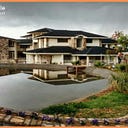TYPES OF EDUCATION: FORMAL, INFORMAL AND NON-FORMAL
Education forms a holistic and significant part of any individual’s life. It is the process of gaining or imparting knowledge that aids in building a proficient personality, ultimately improving the quality of life.
Education is not only the knowledge contained in the books but is a much broader concept that helps in the enhancement of the skills and mental abilities of human beings. It goes beyond the classrooms, schools, and colleges. Education focuses on the development of the academic, psychological, spiritual and physical capabilities of a person. An uneducated person faces several difficulties in life. So, keeping all these points in mind, boarding schools in Dehradun make their students aware of all types of educations. And groom their overall personality. School in Dehradun works diligently on educating their girl students in the best possible way.
Education can be gained in several forms through schools, life experiences and extra-curricular activities. Education has no specifications or boundaries assigned to it. Therefore it can be broadly classified under three categories:-
- Formal Education
- Informal Education
- Non-formal Education
Following are the details about each category.
FORMAL EDUCATION
Formal education is the one that works under the framework set by individual boards of education. The orderly learning environment includes educational institutions, classrooms, specially trained teachers, teaching equipment, extra-curricular activities, competitions, examinations and a curriculum or syllabus. Formal education, as the name suggests, is very structured in natures as proper guidelines are laid, and the students are expected to work under these guidelines.
Formal education is followed in schools, colleges and other courses that follow a specific type of coursework. Some of its characteristics are as follows:-
- A proper chronologically designed structure based on the hierarchy is followed.
- Syllabus and books are assigned correctly.
- The schedule is maintained and followed.
- Regular exams and tests are conducted.
- Fees are applied, and the students work in a disciplined organisation.
PROS
- Works towards instilling technical skills in the students.
- A proper schedule helps in disciplining the students towards achieving a common goal.
- Teamwork and social interaction skills get developed.
- Education is obtained under the influence of the professionally trained educators.
- A certified course which is recognised by the institutions.
CONS
- Students are more susceptible to the negative influences of society as a large number of people are present in schools, colleges etc.
- Every student has a different set of abilities and keeping everyone together under typical coursework can be disadvantageous to specific students.
- The costs incurred and the resources used can come out to be very expensive in the long run.
INFORMAL EDUCATION
Informal education is the type of knowledge that one gains through several life experiences. This knowledge can be the one that we obtain from our parents and elders. Individual necessary skills of life that are important for survival and sustenance comes under this category. It does not contain the theoretical knowledge of the books.
Learning to drive, cook, make specific arrangements, and booking appointments are some example of informal education. Informal education is gained under the influence of society and the community.
The most excellent teacher of informal education is the experience and encounters that one faces throughout their life. Home-schooling is also one of the most exceptional examples of friendly education practices. Some of its characters are as follows:-
- It is free from the various rules regulations and restrictions.
- It is devoid of the various schooling formalities such as following a schedule, carrying the necessary school items and a proper dress code.
- There are no exams, and no complicated curriculum is followed.
PROS
- A cost-free and natural system of gaining an education.
- There is no time pressure and boundaries.
- One can choose their preferred sources of gaining an education.
- No exam stress.
CONS
- Reliable sources for getting knowledge are absent. A person may fall prey to all kinds of misleading information.
- Absence of professional trainers can lead to inefficient learning practices.
- Certain things that one learns in schools such as discipline, social interaction and communication skills are not available in an informal teaching atmosphere.
- No proper schedule is followed hence making the whole procedure less efficient.
NON-FORMAL EDUCATION
Non-formal education is one that is framed according to the requirement of a particular job. This type of training is not considered as a necessity but more of a skill. Such kind of education should be promoted more as they are proficient in catering to industrial needs. A proper framework can be developed in making this education more mainstream.
These can be various fitness programs, boy-scouts, software learning etc.
PROS
- Flexible courses as per the capabilities of the individuals are offered.
- No schedule is to be followed, and exams are not a necessity.
- Helps in developing specialised skills in an individual.
- Diploma, degree, awards etc. are not a necessity.
CONS
- Primary formal education is necessary for indulging in such courses.
- Lack of seriousness as the individual has more independence.
- Lack in regularity and schedule.
- No exams and certifications can undermine its credibility.
- Many such courses may not be that useful in the long run.
